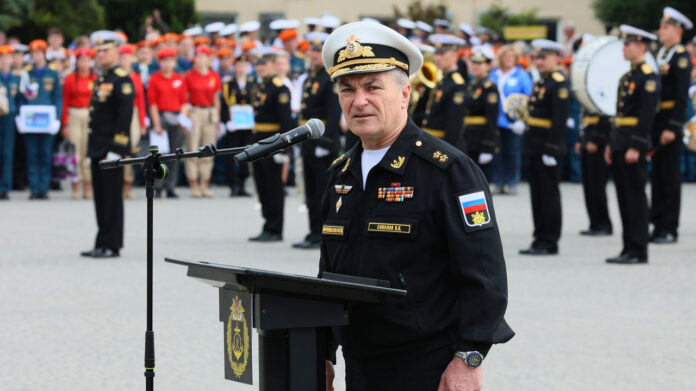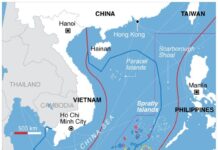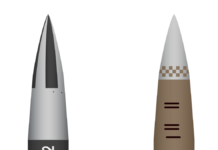Yesterday (9/25/23), Ukraine’s special forces announced the killing of Admiral Viktor Sokolov, the Russian Black Sea Fleet commander. This significant development occurred during a missile strike on the headquarters of the Black Sea Fleet in Sevastopol, which has been under Russian control since 2014. Alongside Sokolov, 33 other officers lost their lives in the attack, while 105 others were wounded.
In August of 2022, Admiral Sokolov was appointed the Black Sea Fleet commander. His death follows a series of setbacks for the Russian Navy in the Black Sea, including Ukrainian forces’ sinking of the flagship cruiser Moskva in April 2022. Ukraine’s strategy has been to target Crimea, making it increasingly difficult for Moscow to use the region as a logistics hub and thus raising the cost of maintaining control over the strategically vital peninsula.
While the Ukrainian statement did not initially name Sokolov, Anton Gerashchenko, an adviser to Ukraine’s minister of internal affairs, later confirmed his identity by posting a photo of the admiral on social media. Sokolov was shown remotely attending a defense leaders’ meeting on Russian state television, seemingly contradicting Ukraine’s claim of his death. Nevertheless, Ukraine’s special forces responded, asserting that the Russian release was an attempt to prove Sokolov was still alive.
The attack on Sevastopol and the alleged death of Admiral Sokolov are the latest blows in a series of escalating tensions between Ukraine and Russia. Ukraine has been increasingly targeting strategic locations in Crimea to disrupt Russian logistics and control. Recently, they have launched attacks on military airfields, ship-repair facilities, and naval ships.
In response to these strikes, the Kremlin has faced growing embarrassment and challenges in protecting its occupation of Crimea. President Vladimir Putin’s vision of an expanded Russian territory hinges on holding Crimea, and these attacks demonstrate that Moscow is not immune to Ukrainian strikes.
Image is licensed under the Creative Commons Attribution 4.0 International license and was created by the Department of Information and Press Service of the Head of the Republic of Crimea.









